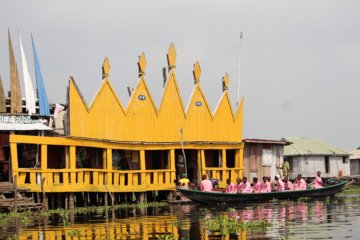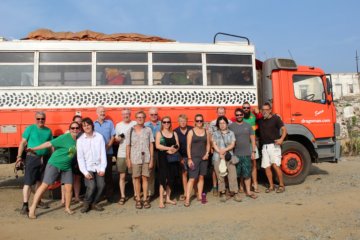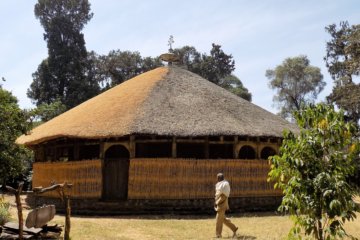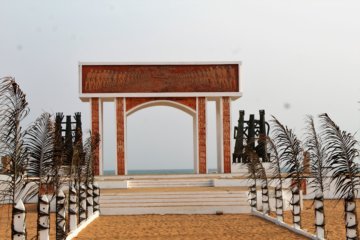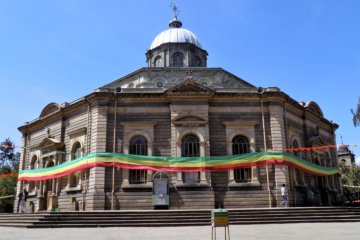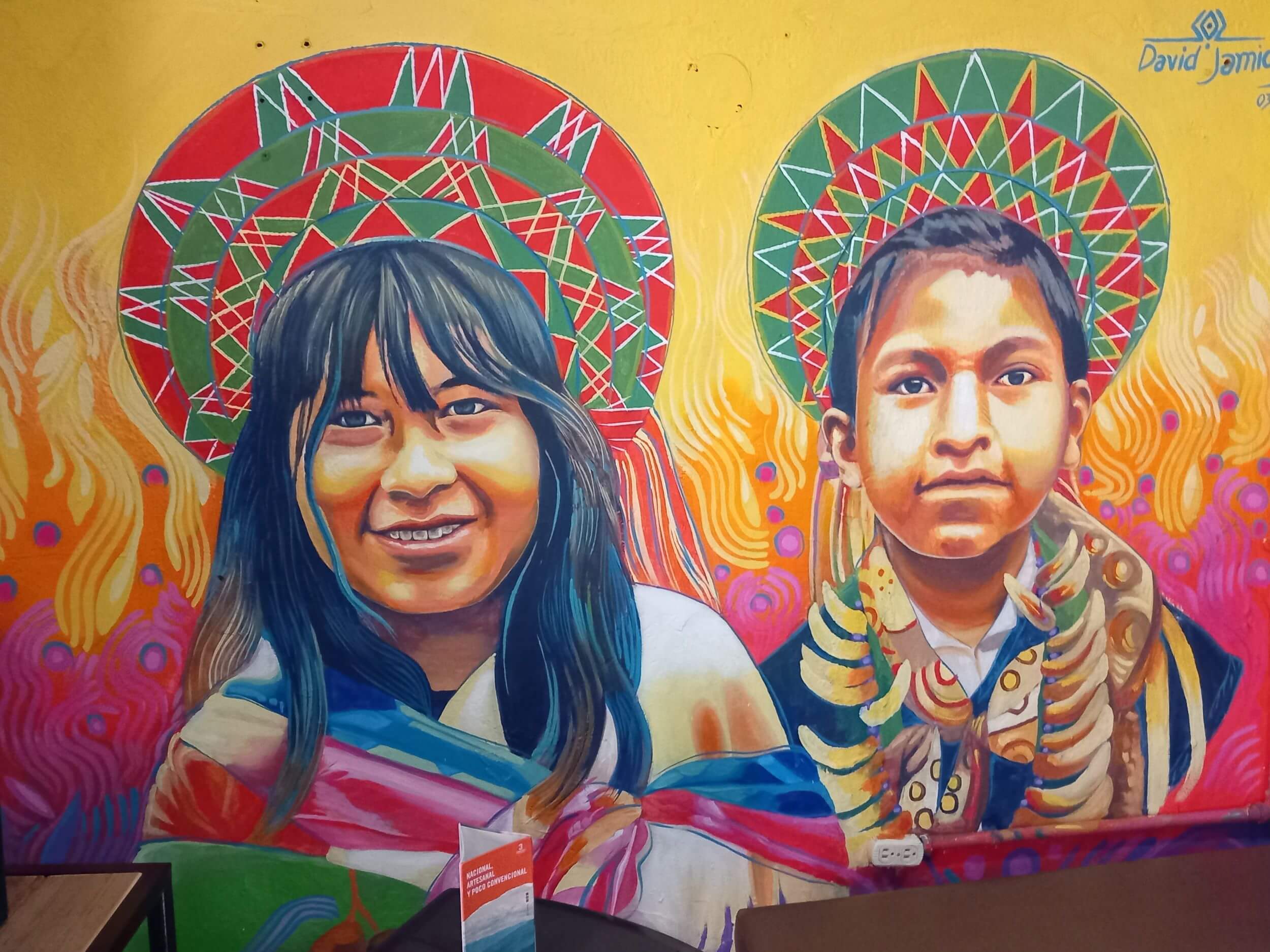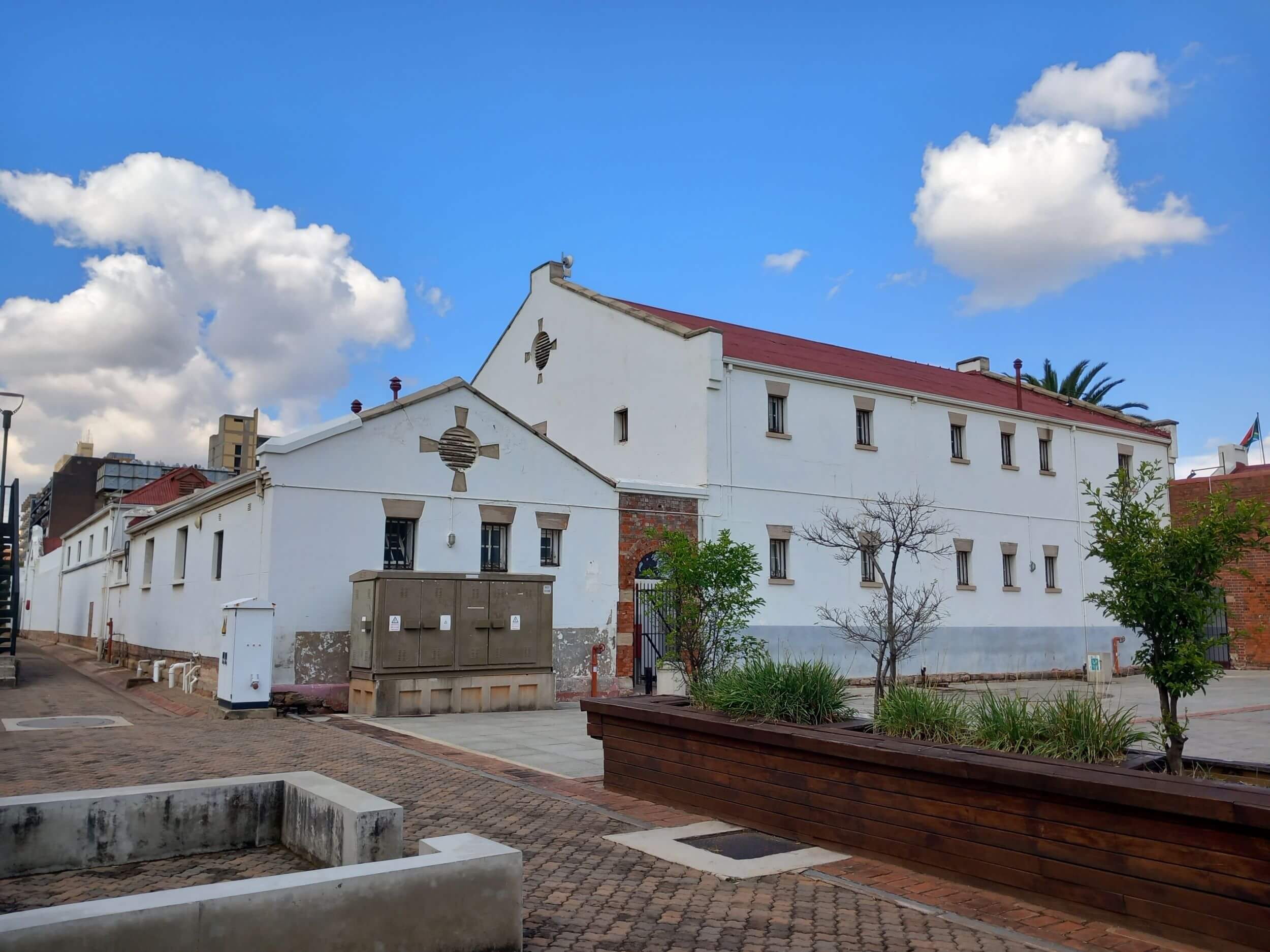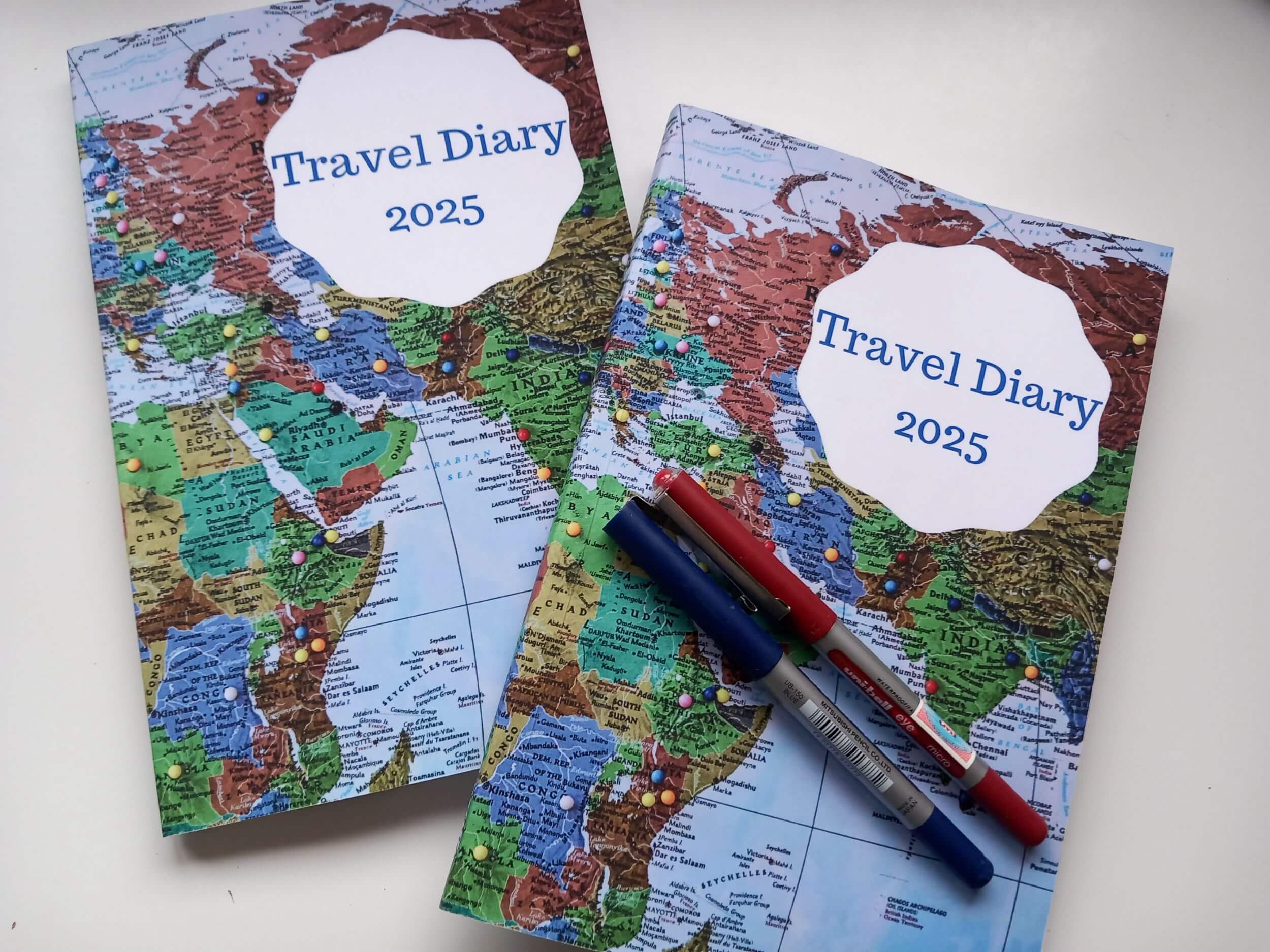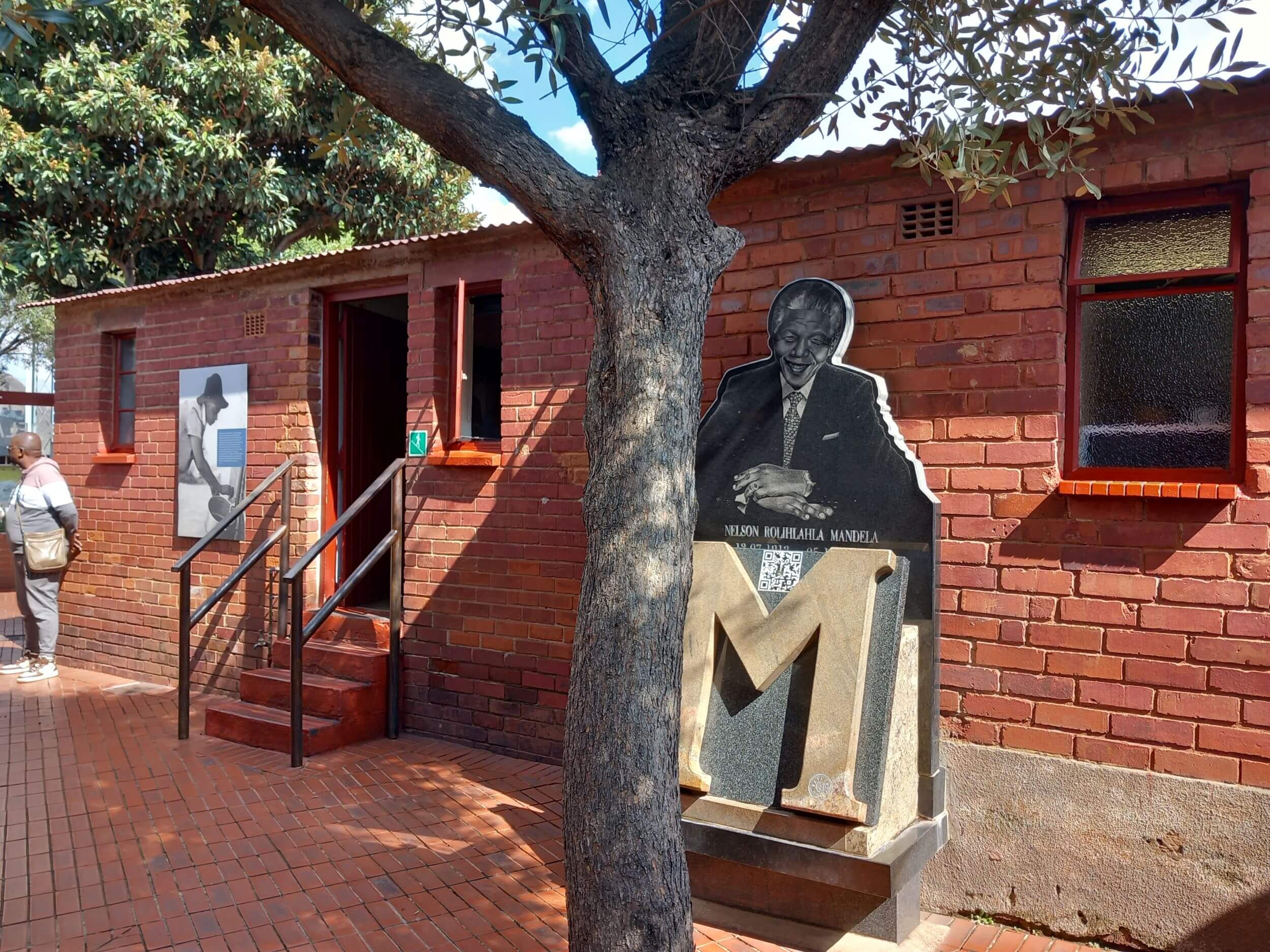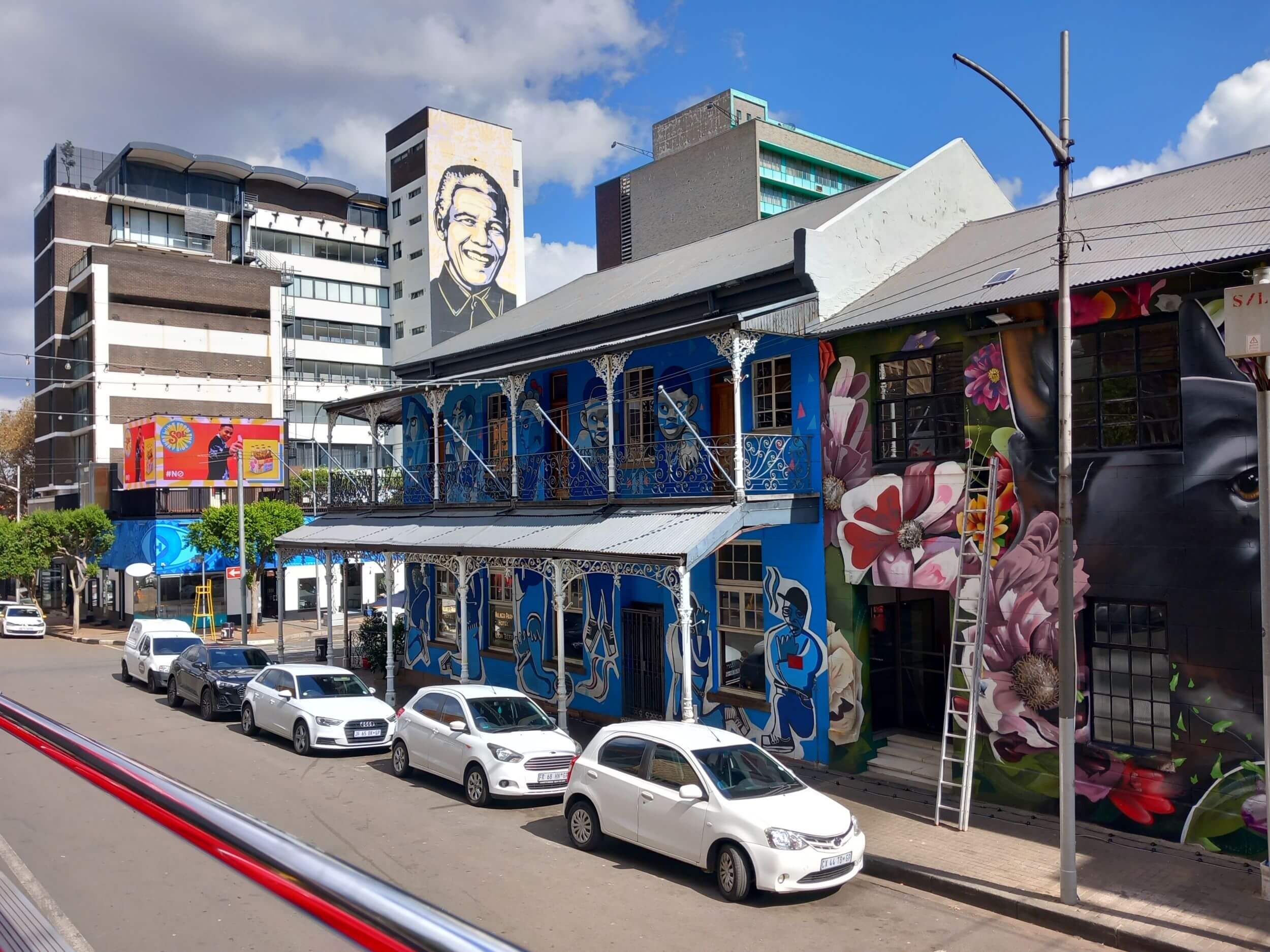We visited Tanji as the last stop on our ‘4 tours in 1 day’ run by Arch Tours. What an amazing experience!!
We arrived in the late afternoon just as the day’s catch was being brought ashore. Whilst the first thing that struck me was the pungent fishy smell which hung over the place, the second, much more pleasant impression, as is often the case here in The Gambia, was of colour – vibrant, brilliant colours emanating from the brightly painted pirogues (local fishing boats), the women’s stunning dresses, and the vivid buckets being run up the beach on the heads of teenage boys. The whole scene was gloriously chaotic; the beach was teeming with all kinds of people, and the noise of men and women shouting and different music blaring out from every boat was deafening. As an outsider, it was difficult to see any order in the chaos, but our guide Ali (aka Rhino) did his best to explain to us what was going on.
There was a huge number of pirogues coming to anchor just off the beach and in front of each one, there was a row of women and children wading out to help unload the catch into buckets. The fish were then taken up the beach to the merchants who sorted them according to size and species. Some of the older women who were collecting fish might only take a couple of bucket loads and, in return for their efforts, be given a couple of fish to take home and cook for their families. For the teenage boys, however, the unloading of the catch is a way to earn money and they run up and down the beach with bucket after bucket balanced on their heads until there are no more fish to be had. It was amusing to watch them being chased by younger children who were not yet big enough to carry a bucket themselves, but who were ready to pick up any fish that might spill out on the way to the merchants!
The quantity and range of the catch being landed was staggering – ladyfish, butterfish, barracuda, yellowtail, snapper, catfish, mullet, seam bream, sea snail and many others all came tumbling out of the boats’ gunwales into the buckets, jumping and sparkling as the sun was going down.
Once the fish were with the merchants, they were sorted. Those that were to be sold fresh ended up on makeshift tables on the beach, where beautifully dressed women gutted them and arranged them in wonderful displays for sale. It was so incongruous to see the ladies in their finery, many of them with full make-up and elaborate wigs, their feet surrounded by rotting fish offal and the inevitable stench that accompanied it!
| Smokehouse |
| Washing drying in the smoke |
Fish deemed unsuitable for selling fresh, or for which there is no demand, is preserved in one of three ways – it is frozen, dried or smoked. All of this happens in situ, at the back of the beach. Here, it’s like entering another world, particularly the pungent and swelteringly hot smokehouses which have a hellish atmosphere of thick, acrid smoke and acrid aromas which make you gag. People spend their lives here. They live adjacent to the smokehouses and we caught glimpses of meals being cooked and children doing homework in sparse, smoky wooden huts. Even here, though, the women still wore their colourful outfits!
For me, the drying section was even worse. The fish are left whole and laid out on racks in the sun to dry. Women go along the rows of racks, making sure that the fish are turned regularly to ensure that they dry thoroughly and evenly. The smell here was sickening! The fish were absolutely covered in a thick layer of fat black flies! Rhino told us that nobody ever gets ill from eating these fish as they are boiled when they are cooked, thus killing any larvae which are living in the flesh! I don’t think I’ll be risking it!!
| Drying the fish |
There is a huge ice house on site where fish are frozen immediately and then shipped off in lorries to Gambia’s landlocked neighbours, the biggest market being Mali. The dried and smoked fish is packed off to the markets of Banjul and Serekunda.
One area of this mad, lively place really baffled me. It looked like a freezer graveyard – every shape and size of chest and upright freezer, with varying degrees of rust, crammed together, each numbered in black paint. I wondered as to their purpose, especially since none of them were plugged in, but Rhino explained that the fish merchants used them to store any of the day’s catch which remained unsold. They added ice from the ice house and that was sufficient to keep them fresh until the following morning when more buyers would arrive. The black numbers identified which merchant owned which freezer.
| The freezer graveyard |
As I write this, we have now been in The Gambia for three weeks and we have eaten a lot of fish. It has all been fresh and delicious. Having seen the process, we haven’t been tempted to try the dried or smoked varieties!
Join our mailing list

Sign up to receive our monthly newsletter. Keep up with what we're doing and be the first to receive special offers and insider tips.

